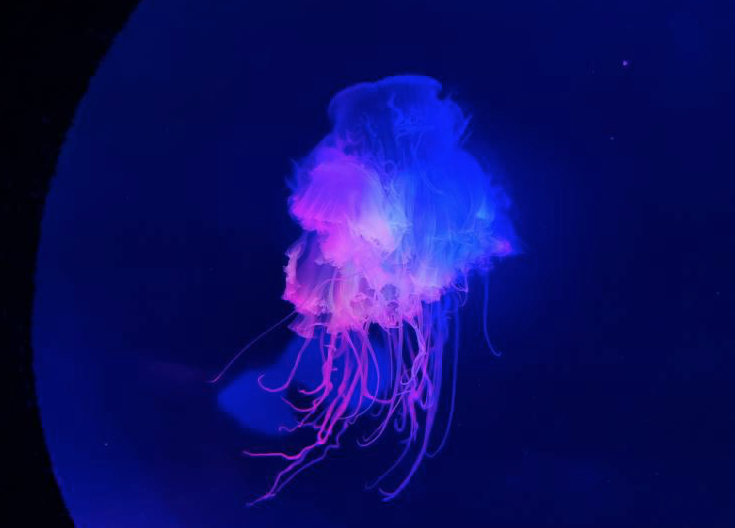The famous Two Oceans Aquarium has announced that they have discovered another pink meanie jellyfish in Cape waters, which is now on display.
“Although this jellyfish has yet to be formally described and given a scientific name, this second find by the Two Oceans Aquarium Collections Team suggests that this elusive jelly may be a much more crucial part of our offshore ecosystem than previously imagined,” the aquarium said.
As with the first pink meanie, which was discovered accidentally at the aquarium in 2017, this newcomer is another accidental find.

“Approximately one month ago, the Collections Team and our volunteer commercial divers were collecting nightlight jellyfish in the waters around Robben Island and in Cape Town Harbour. These night light jellyfish had been washing up in unusually large numbers all around the Western Cape in the previous few months, so we thought this would be an excellent opportunity to collect a few for display at the Aquarium,” it said. “Little did the collections team know that their smack of nightlight jellies had a tiny stowaway.”
A pink meanie ephyra (the free-swimming baby form of a jellyfish) was hidden amongst the oral arms of the nightlight jellies and over a few short days, as it grew to metaephyra (essentially, a teenaged jellyfish) stage and consumed all the nightlight jellies the team had collected.
“Needless to say, our resident jelly expert Krish Lewis was thrilled by the rediscovery of this elusive jelly that he had previously dubbed ‘the unicorn of jellyfish’, and the discovery of one so young gave us the opportunity to study some of the early life stages of this unusual animal,” the aquarium said.
Pink meanies are jellyvorous, meaning they feed on other jelly species by reeling them in with their long tentacles. It is considered the most efficient jellyvorous jelly, as it can digest its prey within two to three hours. Its Mexican cousins have been seen consuming up to 34 other jellies at once.
“We know from experimentation at the Two Oceans Aquarium that pink meanies do not eat other jelly-like animals. In test feeds, both salps and comb jellies have been rejected as food by the pink meanie. We have found that it only feeds on Scyphozoa (true jellyfish, like compass jellies) and Cubozoa (box jellies),” the aquarium said.
This unique find is the first step to a larger discovery that could help scientists better understand the environment of Cape Town’s waters and the mysterious jellyfish species as a whole.
Source: Two Oceans Aquarium
Picture: Two Oceans Aquarium

